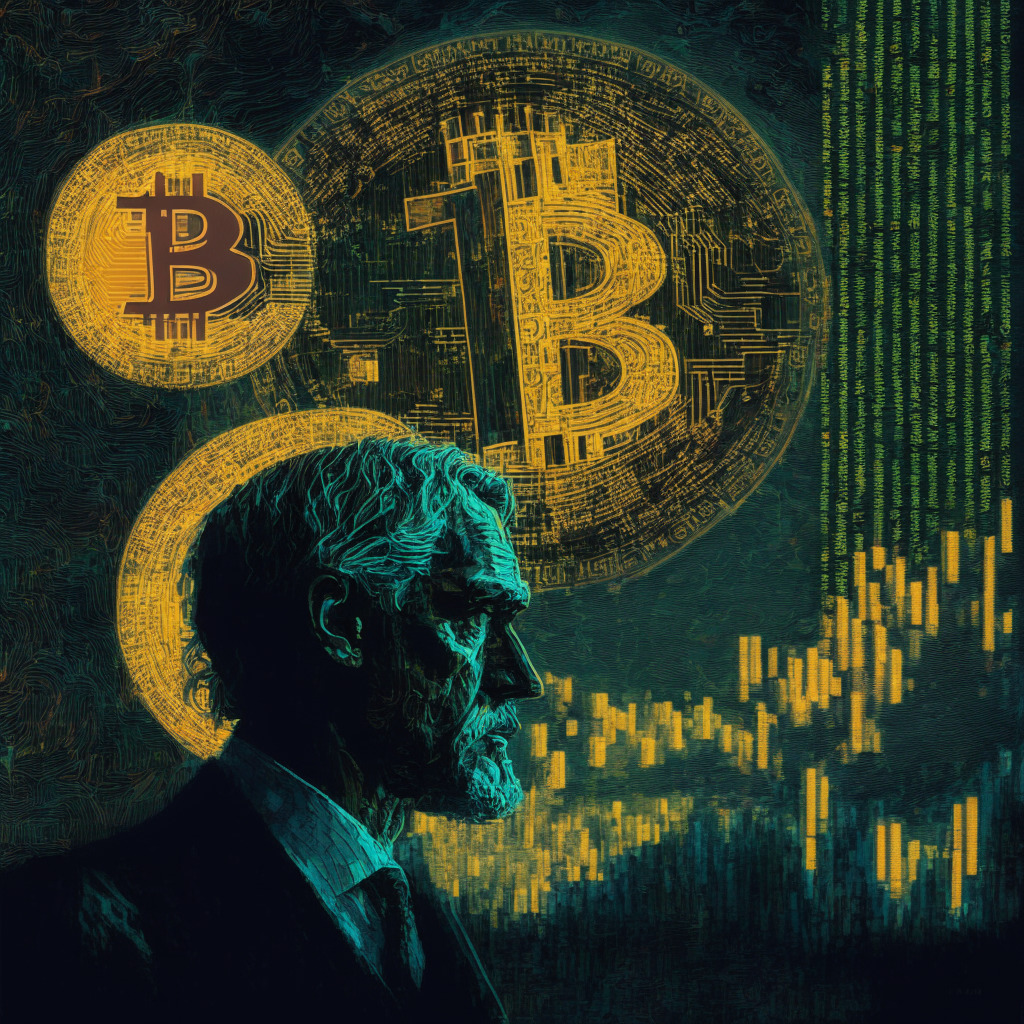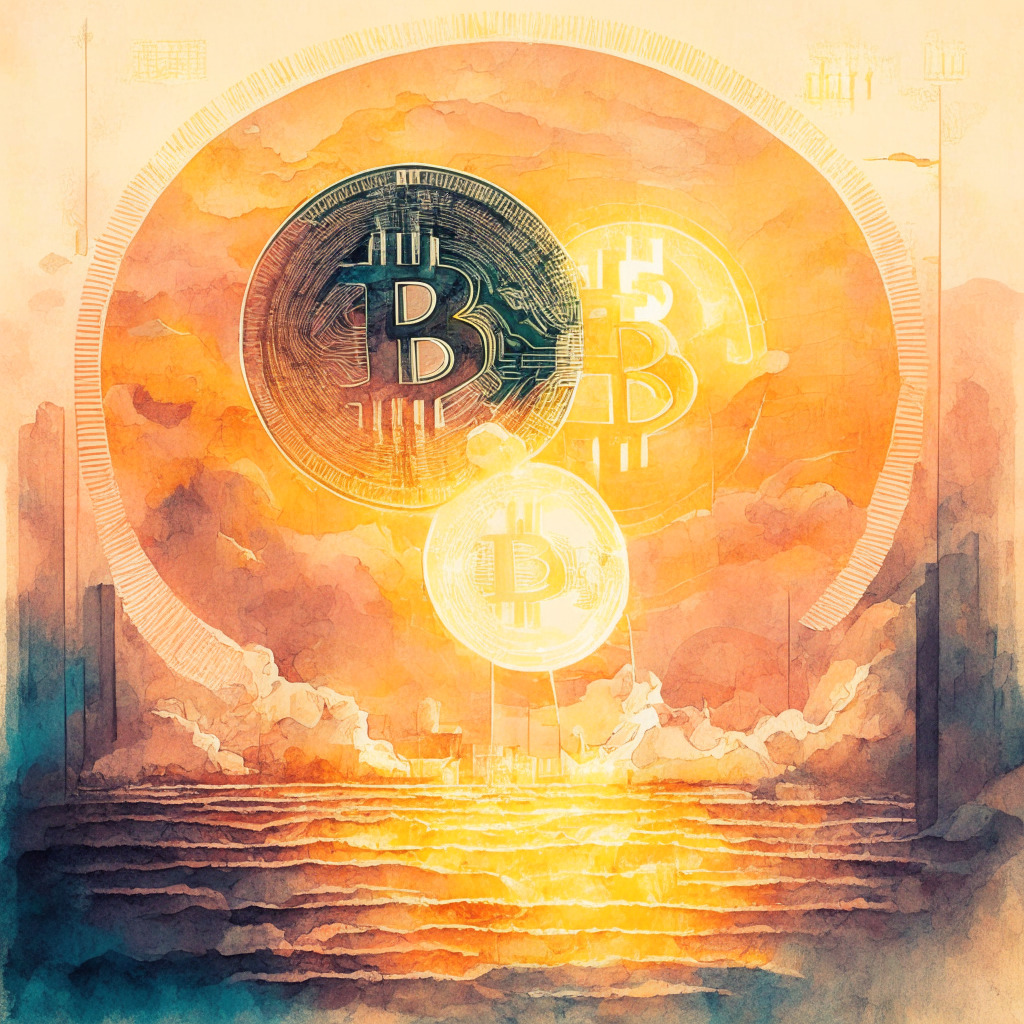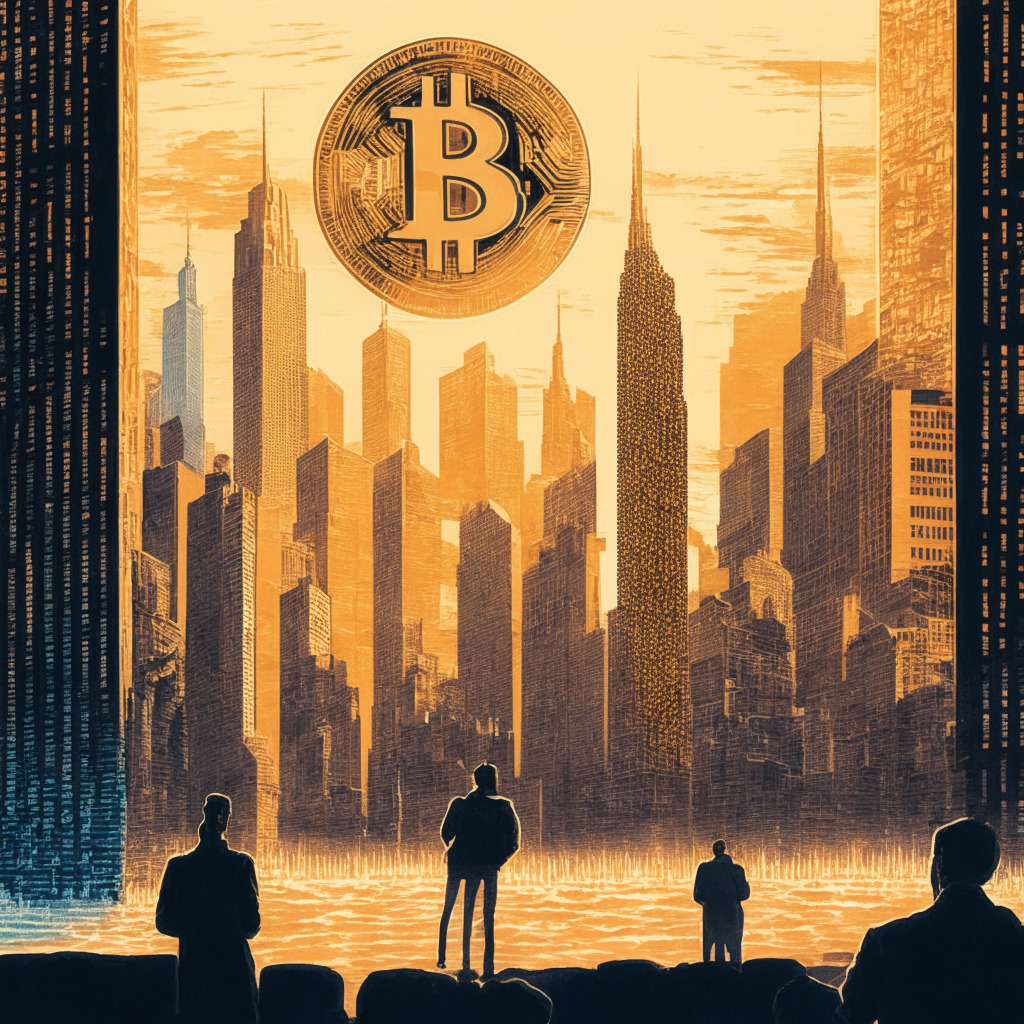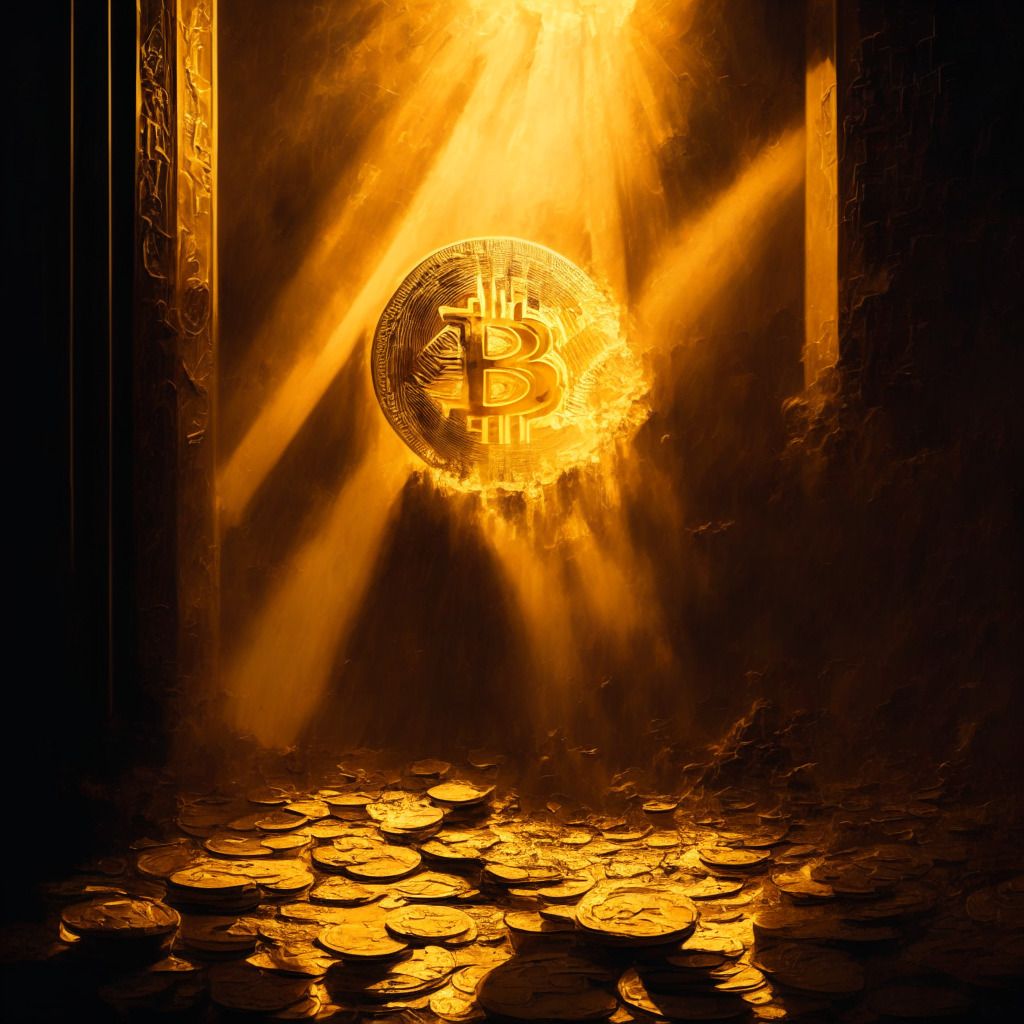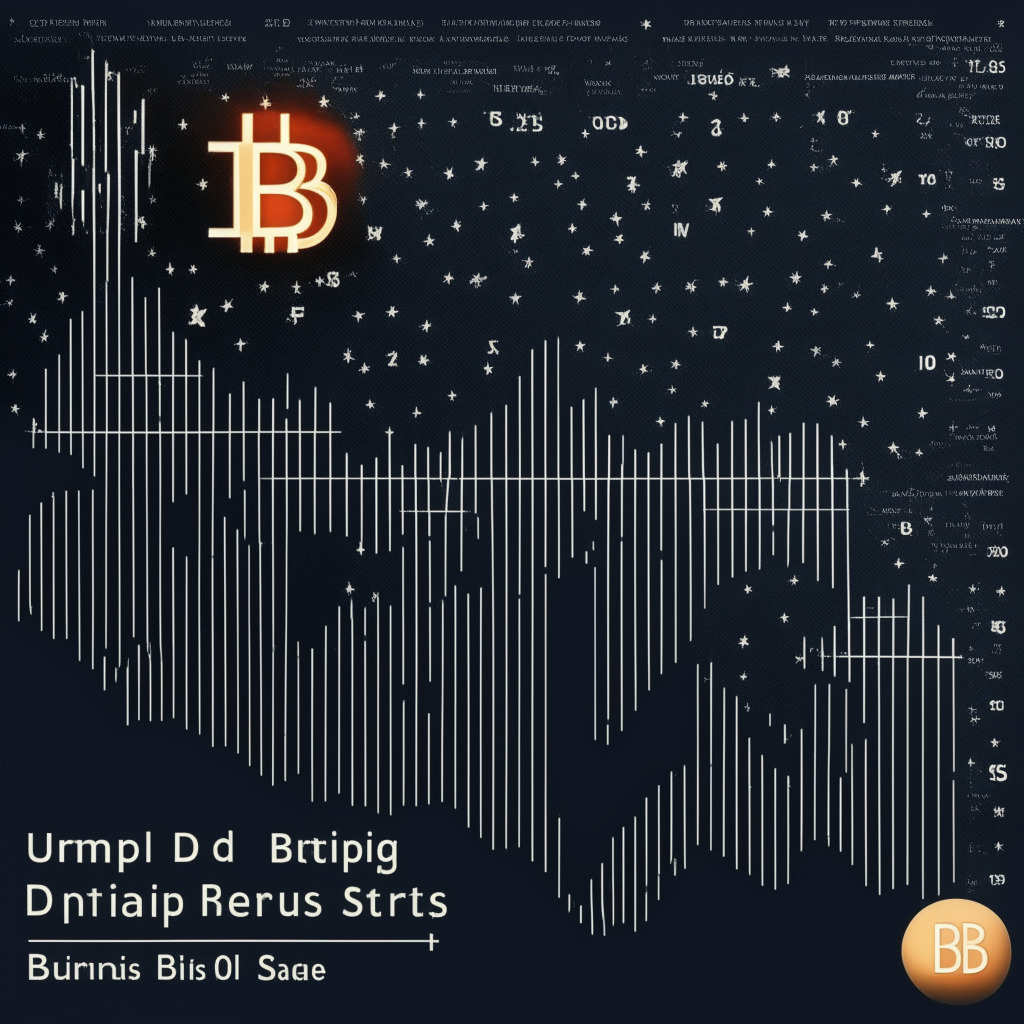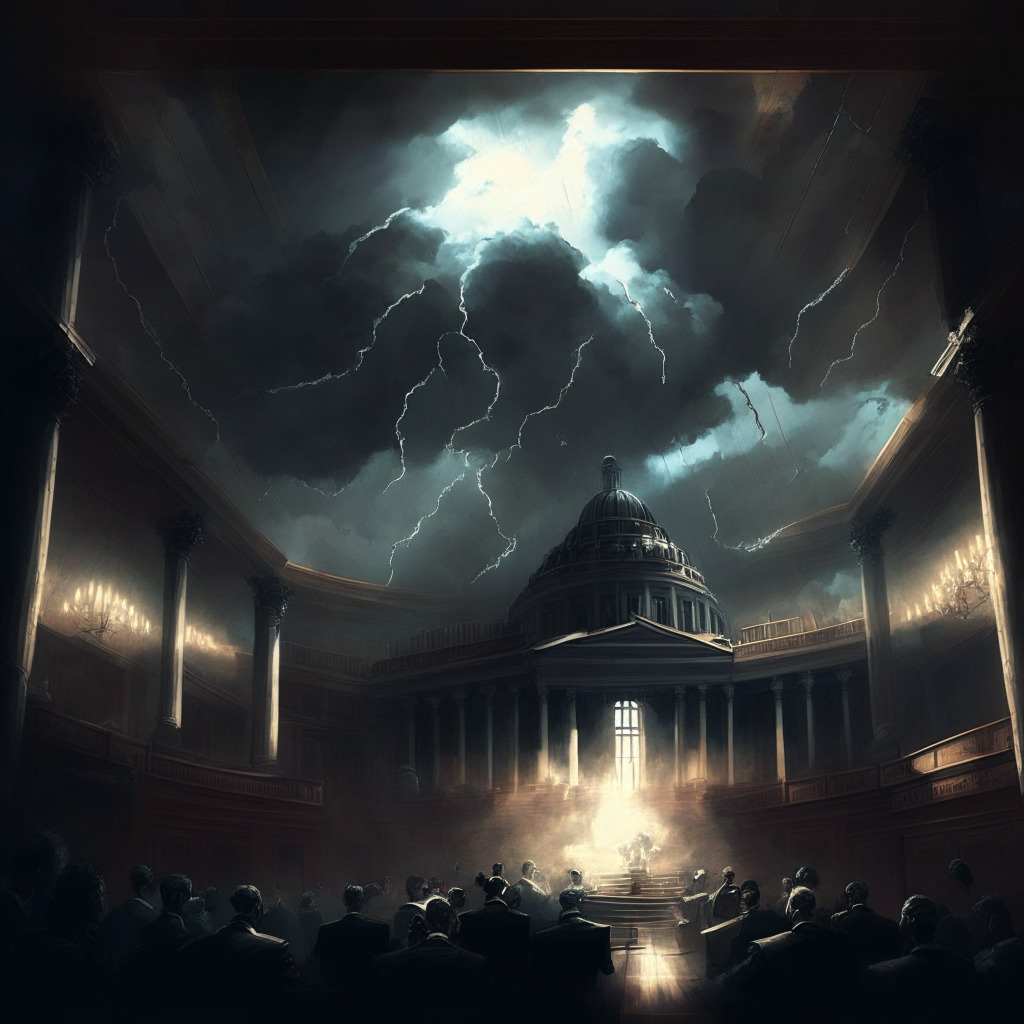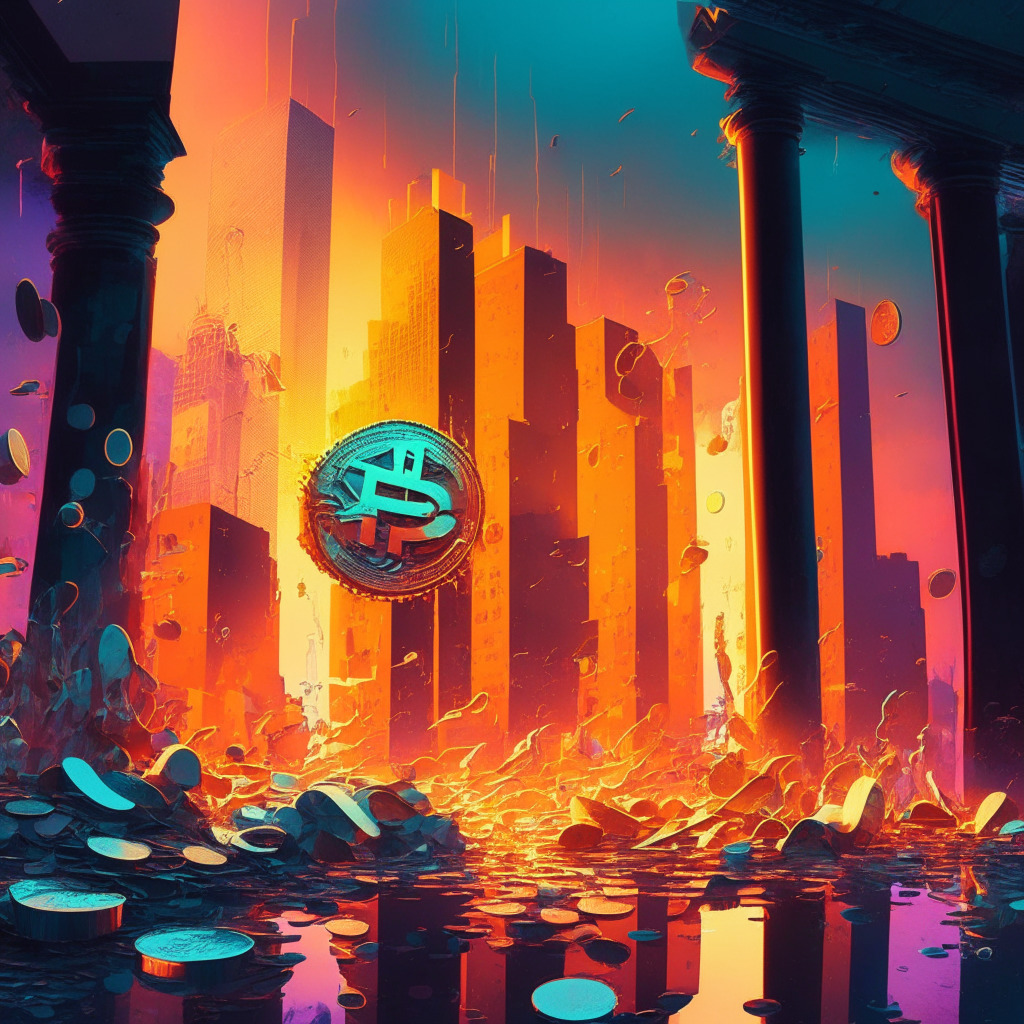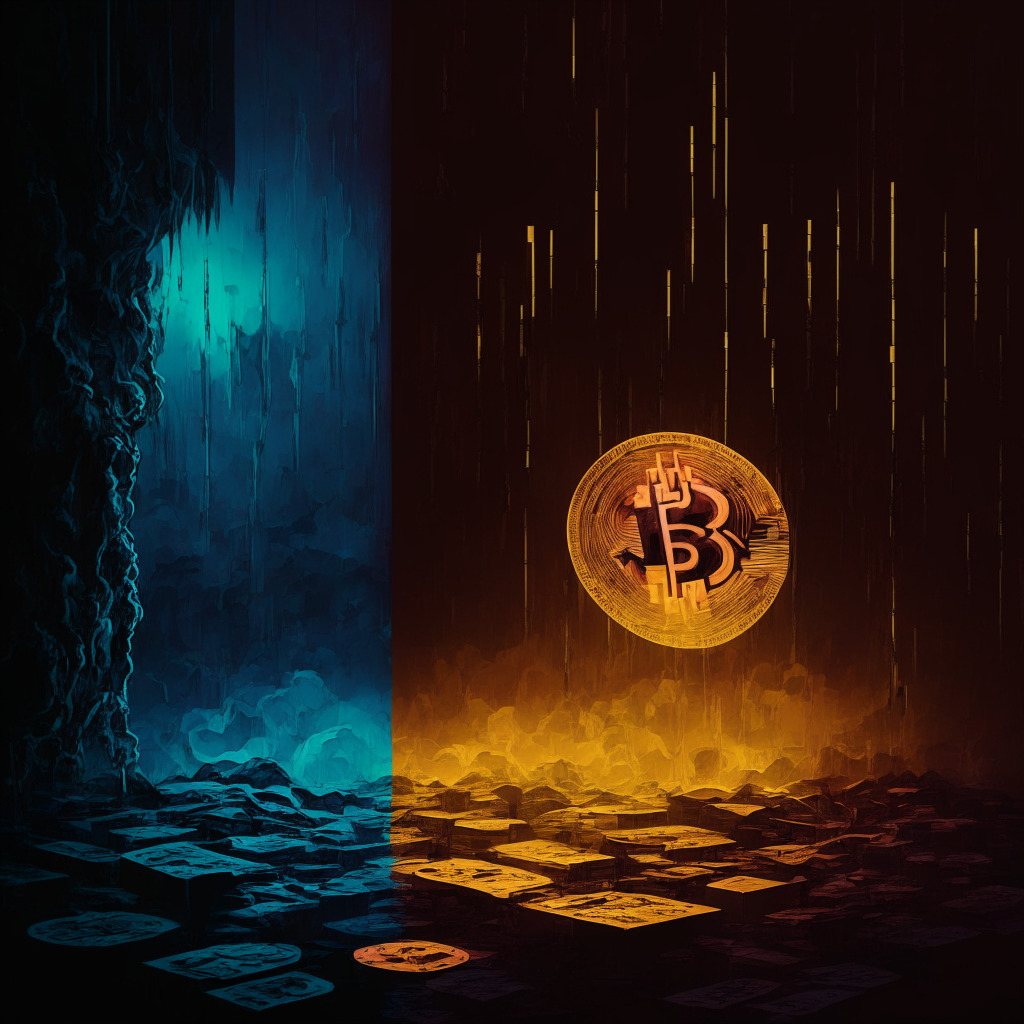The surge of Bitcoin towards $27,000 has generated excitement among traders. Crypto Ed suggests potential targets including a CME gap between $26,500 and $26,800. The unfolding US debt ceiling crisis may impact Bitcoin, leading to increased volatility and decreased liquidity in the coming weeks.
Search Results for: US Federal Reserve
Michael Burry’s Strategic Moves in Distressed US Banks and Crypto: Opportunities or Risks?
Michael Burry, the “Big Short” investor, strategically acquires shares in distressed banks, boosting confidence in banking stocks. Despite crises and valuation slumps, Burry’s investments tackle different avenues within the banking ecosystem, while also exploring the digital currency space. Market research is crucial for investment decisions.
Regulatory Uncertainty and Bitcoin’s Future: Navigating the Challenges in the US Market
Hedge fund manager Paul Tudor Jones highlights Bitcoin’s regulatory challenges in the US and predicts lower inflation, reducing the cryptocurrency’s appeal as an inflationary hedge. However, the global market and other use cases, like financial inclusion and cross-border transactions, still promote long-term adoption and innovation for cryptocurrencies.
US Losing Stablecoin Dominance: USDC’s Struggle and the Rise of Tether Threatens Digital Economy
The US may be losing ground in the digital economy as USD Coin (USDC) faces strong competition from Tether (USDT). This shift could undermine US control and expose the Web3 community to less-regulated forces. Policymakers must prioritize Web3 and stablecoins to ensure America’s influence in the digital economy.
Binance Liquidity Decline Triggers Bitcoin Volatility: Impact of US Banking Failures and Promotions
Binance experienced a decline in trading volumes and liquidity in Q1 2023 due to U.S. banking failures and termination of its zero-fee promotion. This resulted in increased Bitcoin price volatility and a sharp drop in monthly trading volumes for the BTC-USDT pair.
2023 Crypto Crackdown: Operation Choke Point 2.0 vs Banking Industry Collapse
The US regulators’ crackdown on the crypto market has led to the closure of Silvergate, Silicon Valley Bank, and Signature, while prominent figures criticize scapegoating cryptocurrencies for the banking crisis. The House Financial Services Committee investigates potential coordinated efforts to de-bank the crypto market as the banking crisis worsens.
US House Committee Seeks Crypto Clarity Amid SEC Contradictions and Offshore Exodus
The U.S. House Financial Services Committee aims to clarify digital asset regulations amid contradictory actions from SEC Chair Gary Gensler. As U.S.-based crypto firms consider moving offshore due to regulatory crackdowns, upcoming hearings will address regulatory gaps and potential coordinated efforts by regulators for “Operation Choke Point 2.0” to de-bank the crypto market.
US Inflation Data Impact on Bitcoin: Analyzing Market Reactions and Future Predictions
The latest US Consumer Price Index (CPI) inflation data suggests easier monetary policy conditions ahead, which generally benefit Bitcoin. Despite potential short-term concerns, Bitcoin’s long-term bull market thesis is likely to remain intact. The US bank crisis could boost demand for “hard money” alternatives like Bitcoin and gold.
US Inflation Decline: A Boon or Bane for Bitcoin and Cryptocurrency Markets?
The U.S. inflation decline and anticipated pause in June’s rate hike could increase investor interest in cryptocurrencies like Bitcoin. However, high core CPI and potential BTC volatility due to reduced liquidity must be considered by investors.
Falling US CPI Inflation Boosts Bitcoin: Navigating Crypto Amid Interest Rate Uncertainty
The annual U.S. CPI inflation rate fell to 4.9% in April, leading to a surge in Bitcoin’s price as traders anticipate the Fed cutting interest rates. Lower inflation could boost the crypto market, but investors must consider risks and fluctuations before investing.
Inflation Rate Slowdown, Bitcoin Reaction, and Federal Reserve Impact on Cryptocurrency
The annual US inflation rate slowed to 4.9% in April, impacting the cryptocurrency market as Bitcoin’s price rose over 1%. This highlights the sensitivity of cryptocurrencies to economic shifts and emphasizes the importance of monitoring inflation rates and economic indicators for market predictions.
Bitcoin’s Intraday Volatility and Its Connection to US Inflation Data Release
The U.S. Bureau of Labor Statistics is set to release April’s CPI inflation data, while Bitcoin has exhibited increased intraday volatility around such releases. This trend is tied to the Fed’s monetary policy and may prompt further price fluctuations in the leading cryptocurrency.
Crypto Market Awaits US Inflation Report: Impact on Bitcoin and Wall Street’s Next Move
As the U.S. inflation report release approaches, investors anticipate its impact on the crypto market. The focus lies on Binance and cold wallet storage while observing the U.S. Federal Reserve’s decisions and their effects on cryptocurrencies. Cautious optimism remains among blockchain enthusiasts.
Growing Uncertainty for US CBDC Future: Political Divides and Privacy Concerns at Stake
The future of Central Bank Digital Currencies (CBDC) in the US faces uncertainty due to growing bipartisan opposition, with concerns regarding increased surveillance power and privacy at the center of the conflict. The CBDC Anti-Surveillance State Act aims to enhance oversight and prohibit the Federal Reserve from issuing a CBDC.
Ethereum Volatility Dips Amid Global Uncertainty: Time to Go Long or Stay Cautious?
The recent downtrend in Deribit’s ether volatility index (ETH DVOL) has crypto enthusiasts’ attention amid macroeconomic uncertainties and increasing Ethereum network demand. As major cryptocurrency price swing expectations appear underpriced, staying informed and prepared for potential market changes is crucial for investors and traders.
Blockchain Revolution: Navigating the Pros, Cons, and Main Conflicts in the Crypto Industry
The blockchain and cryptocurrency revolution offers a future of potential and uncertainty, with supporters praising their transparency and security, and skeptics questioning their reliability and long-term sustainability. As the crypto landscape rapidly evolves, understanding the pros and cons, engaging in open discussions, and staying informed is crucial for safe adoption.
US Labor Data Surge Boosts Crypto Markets: Analyzing Top Performers and Investment Risks
Recent favorable employment data from the US Bureau of Labor Statistics sparked a surge in the stock market and a minor rally in the crypto markets. Notable crypto performers include AI, FLOW, SPONGE, ICP, ECOTERRA, CSPR, and SWDTKN. Investors remain optimistic, but caution is advised when investing in volatile digital assets.
Exploring the Connection Between US Jobs Report and Bitcoin Price Fluctuations
The recent drop in bitcoin’s price following the jobs report suggests a possible correlation between economic factors and cryptocurrencies. However, skeptics argue that the connection may not be as significant due to their decentralized nature. Interpreting their relationship with real-world economic factors is critical to decipher trends and anticipate developments.
Bitcoin Eyes $30k Amid US Banking Crisis: Weighing Risks and Opportunities
Bitcoin price eyes $30,000 as BTC/USD spikes to new May high amid ongoing market jitters from the U.S. banking crisis impacting regional banks. Investors and analysts closely watch the dynamic financial environment and Bitcoin’s struggle to reclaim lost ground, with potential risks and opportunities in the ever-evolving landscape.
US Banking Crisis Impact on Bitcoin: Decline vs Opportunity for Investors
The US banking crisis raises concerns about the overall financial system, with Bitcoin’s recent slide below $29,000 reflecting market jitters. Amidst skepticism of the economic infrastructure, investors may turn to cryptocurrencies like Bitcoin for stability, while carefully monitoring market trends.
US States Ban CBDC Payments: A Constructive Approach or Hindering Innovation?
North Carolina’s House of Representatives unanimously passed a bill prohibiting state agencies from accepting central bank digital currency (CBDC) payments, expressing concerns about potential weaponization and political manipulation of a digital dollar. This decision highlights the polarizing debate surrounding CBDCs in the United States, as lawmakers weigh these risks against potential financial benefits.
De-Dollarization’s Impact on US Banking Sector and Rise of Crypto Alternatives
IMF Managing Director, Kristalina Georgieva, highlights the growing trend of de-dollarization, increasing vulnerabilities in the U.S. banking sector, and the possible emergence of a new global currency. Crypto enthusiasts and industry professionals should closely monitor the shifting financial landscape and its potential global impacts.
Bitcoin and Gold Thrive Amid US Banking Crisis: A Tipping Point for Decentralized Assets?
Bitcoin surges above $29,000 as investors seek alternative assets amidst concerns over the ongoing US banking crisis. Gold hits new all-time highs while the banking sector’s perceived stability is debated, making decentralized assets more attractive for wealth preservation.
US Banks in Turmoil: Is Crypto a Safer Bet Amid Rate Hikes and Market Declines?
Despite Federal Reserve Chairman Jerome Powell’s positive remarks on the US banking sector, regional banks’ share prices have plummeted, raising concerns about the stability of the traditional banking system. On the other hand, cryptocurrencies and blockchain technology continue to gain momentum in the financial landscape, offering potential opportunities for prudent investors.
Federal Funds Rate Hike Pause: A Boon for Bitcoin and Crypto Market Resilience
The end of rate hikes is noteworthy for the crypto market, with this week’s hike being good news for BTC and other crypto assets. An extended pause in rate hikes usually leads to more liquidity, making “risk assets” like bitcoin more attractive. Moreover, bitcoin’s rising value influences the broader crypto market, attracting attention, sparking business growth, and investments in market infrastructure and crypto asset services.
Federal Reserve Rate Hike Impact on Bitcoin: Analyzing Market Responses and Inflation
The Federal Reserve’s interest rate hike didn’t significantly impact Bitcoin’s price, suggesting some insulation for the crypto market. However, it’s important for crypto enthusiasts to monitor ongoing inflation and Federal Reserve measures, and adapt to the complex scenario accordingly.
Crypto Rebound Amid Federal Reserve Rate Decision: Analyzing BTC and ETH’s Future
Bitcoin rebounds from recent losses, with the market’s focus on the U.S. Federal Reserve rate decision. Ethereum nears $1,900 as both cryptocurrencies await the rate decision’s impact on the market. While optimism and skepticism remain, the crypto community closely watches the possible influence on Bitcoin and Ethereum prices.
The Impending USD Short Squeeze: A Threat to Bitcoin and Ether’s Rally? Pros, Cons & Conflicts
This excerpt highlights the potential impact of a short squeeze in the U.S. dollar on leading cryptocurrencies, such as BTC and ETH. Singapore-based QCP Capital warns that this squeeze could result in significant drops, as the negative correlation between the dollar index and cryptocurrencies intensifies.
Bitcoin’s Fate Amid Federal Reserve Decisions: Who Holds the Cards?
Bitcoin’s value surges 70% this year, with the Federal Reserve’s interest rate decision playing a significant role. As Jerome Powell’s announcement approaches, his clarity on the end of the tightening cycle may impact Bitcoin’s price, as Treasury yields and the U.S. dollar historically affect the cryptocurrency’s performance.
US Debt Default: A Catalyst for Bitcoin’s Surge or Global Economic Fallout?
Geoff Kendrick, head of forex research at Standard Chartered, believes that a US debt default could trigger a massive surge in Bitcoin’s value by $20,000. Cryptocurrency enthusiasts argue that Bitcoin’s deflationary nature and decentralized attributes position it as a safe haven during uncertain market conditions. However, the broader impact of a US default on the cryptocurrency market continues to be debated.
Bank Failures: Unraveling the US Banking Sector and Impact on Global Economy
The recent collapse of First Republic Bank, the second-largest bank failure in US history, raises concerns about potential economic repercussions and systemic weaknesses within the US banking sector. Critics argue that the US Federal Reserve’s hawkish policies, including interest rate hikes, contributed to these failures, sparking discussions about the delicate balance governments and central banks must maintain between inflation control and a stable financial sector.
